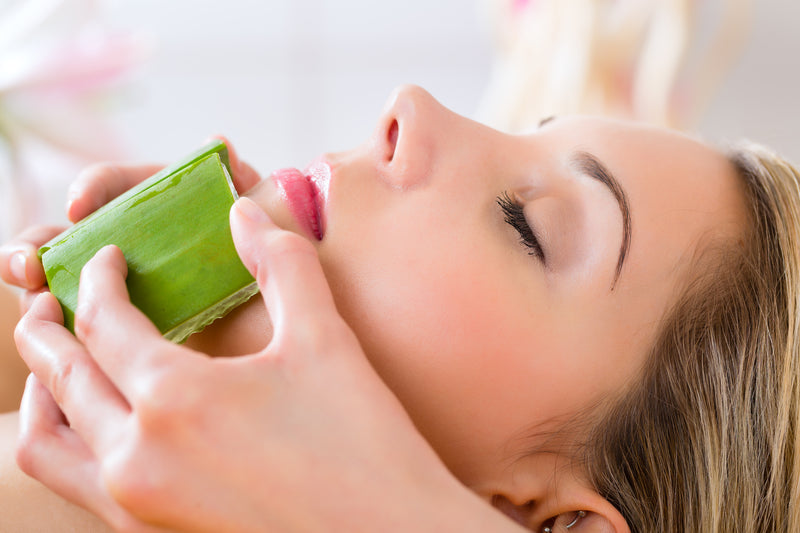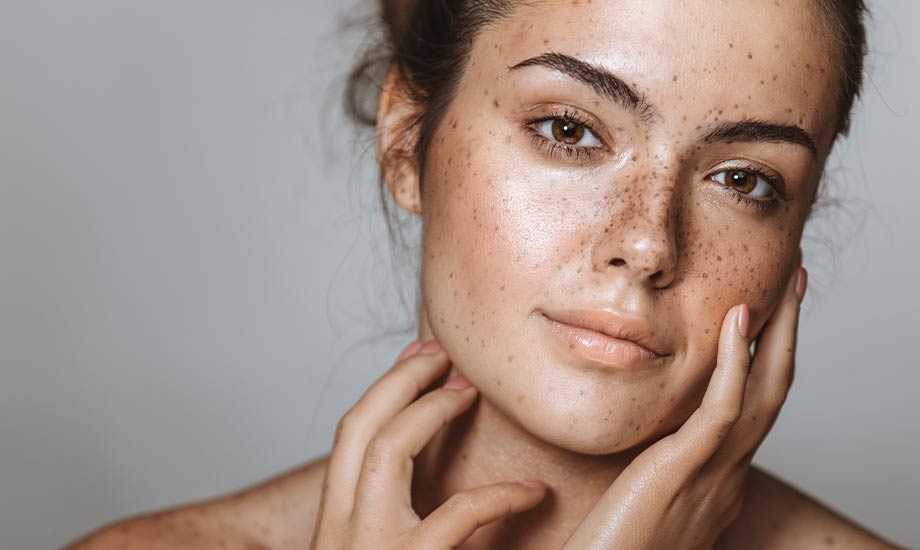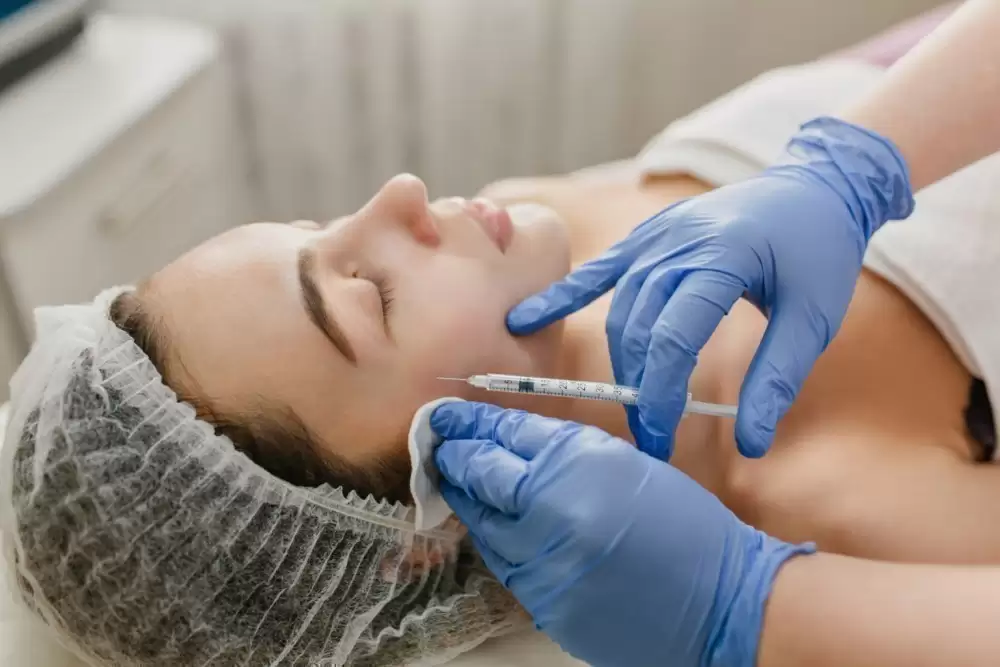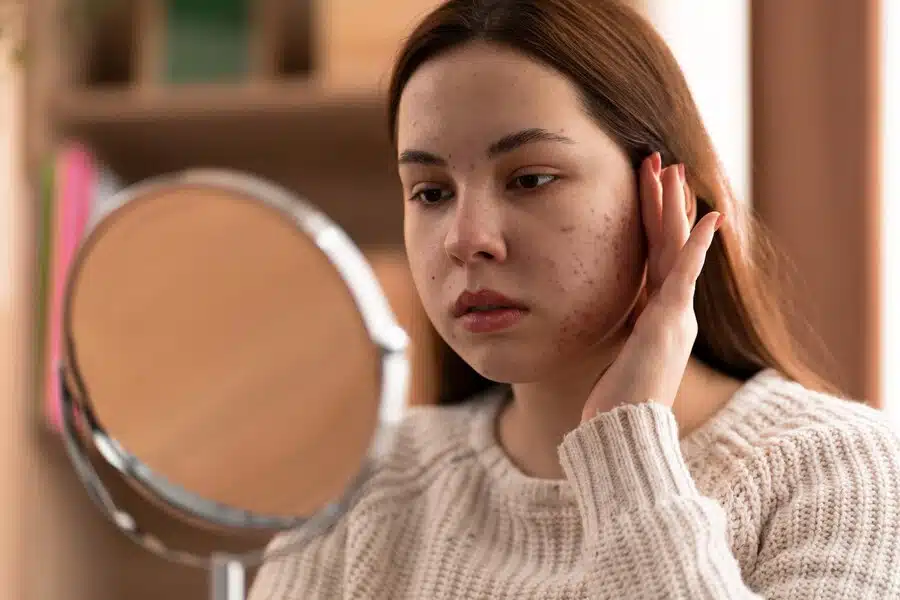Hyperpigmentation Solutions : Hyperpigmentation makes some skin areas darker. It happens when the skin makes too much melanin, the color pigment. This can lead to age spots, melasma, or post-inflammatory hyperpigmentation, making many people unhappy.
This condition is usually harmless but can be a big cosmetic worry. Luckily, there are natural ways to lessen its look at home. We’ll look at how apple cider vinegar, aloe vera, and other plants can help. We’ll also talk about medical treatments for those needing more help with their hyperpigmentation.
Key Takeaways
- Hyperpigmentation is a common skin condition caused by an overproduction of melanin.
- Natural, at-home remedies like apple cider vinegar and aloe vera may help reduce the appearance of hyperpigmentation.
- Medical treatments, such as laser therapy and chemical peels, are available for more advanced cases of hyperpigmentation.
- Addressing the root cause of hyperpigmentation, such as sun exposure or hormonal imbalances, can help prevent future occurrences.
- Consistency and patience are key when using natural remedies to treat hyperpigmentation.
What is Hyperpigmentation?
Skin pigmentation is how our skin gets its color. It’s based on how much melanin our skin cells make. Hyperpigmentation is when the skin darkens too much because of too much melanin. This can happen in spots or all over the body.
Types of Hyperpigmentation
There are different kinds of hyperpigmentation. Age spots, also called liver spots, are often from too much sun. Other causes include medical conditions, medications, hormonal changes, or skin irritation and trauma.
- Sun damage-induced hyperpigmentation, such as age spots or liver spots
- Melasma, a type of hyperpigmentation often triggered by hormonal changes or sun exposure
- Post-inflammatory hyperpigmentation, which can occur after skin irritation or injury
- Medication-induced hyperpigmentation, sometimes a side effect of certain drugs
- Underlying medical conditions that can lead to increased pigmentation, such as Addison’s disease
Knowing the causes of hyperpigmentation and the types of hyperpigmentation helps find the best skin pigmentation disorders treatments.
Apple Cider Vinegar for Hyperpigmentation

If you’re looking for natural ways to fix hyperpigmentation, apple cider vinegar is an option. It’s known for its ability to lighten dark spots and balance skin tone.
Apple cider vinegar contains acetic acid, which can work like a mild chemical peel. It gently peels off the skin and fades dark spots. This makes apple cider vinegar a natural skin lightening solution for home remedies for dark spots.
To use apple cider vinegar for hyperpigmentation, follow these steps:
- Mix equal parts apple cider vinegar and water in a small bowl or container.
- Apply the mixture with a cotton pad or your fingers to the affected areas.
- Let it sit for 2-3 minutes, then rinse with cool water.
- Do this twice a day until you see results.
Remember, it might take a few weeks to see changes. Always test a small area first to check if your skin can handle the vinegar.
“Apple cider vinegar is a game-changer for hyperpigmentation. I’ve been using it for a few months and my dark spots have faded noticeably.” – Sarah, California
Adding apple cider vinegar for hyperpigmentation to your routine can be easy and budget-friendly. Try it out and see how it improves your skin!
Aloe Vera for Hyperpigmentation

Aloe vera is a plant that can help with hyperpigmentation. It’s known for soothing and hydrating the skin. It also has a compound called aloin that can lighten skin.
To use aloe vera for hyperpigmentation, apply the gel to the skin before bed. Rinse it off in the morning. Aloe vera can stop melanin production and spread it out, fading dark spots over time.
Other Plant-Based Remedies
There are more plant-based hyperpigmentation treatments to try. These natural ingredients can control melanin and even skin tone:
- Green tea extract – Green tea’s polyphenols can lighten the skin.
- Licorice extract – Licorice root has glabridin to stop melanin production.
- Mulberry leaves – Mulberry leaves have arbutin to fade dark spots.
Using these natural home remedies for dark spots in your skincare can make your skin look even and bright. You won’t need harsh chemicals.
Hyperpigmentation Solutions

Looking for ways to fix hyperpigmentation? Try natural treatments at home. Apple cider vinegar and aloe vera are great options. You can also use yogurt or milk because they have lactic acid. And, don’t forget about fruits high in vitamin C.
Red onion extract is another great choice for a homemade mask. It’s full of quercetin, an antioxidant that stops melanin production. Melanin is what causes dark spots and uneven skin tone.
Using natural solutions for hyperpigmentation means being patient. These remedies might take weeks or months to work. So, stick with your skincare routine. If home treatments don’t work, you might need medical treatments like chemical peels or laser therapy.
| Natural Hyperpigmentation Treatments | Potential Benefits |
|---|---|
| Yogurt or Milk | Contains lactic acid to gently exfoliate and brighten skin |
| Vitamin C-rich Fruits | Vitamin C can inhibit melanin production and even skin tone |
| Red Onion Extract | Quercetin in red onions can help reduce hyperpigmentation |
Adding these natural treatments to your skincare can help fix hyperpigmentation. You’ll get an even, radiant look without harsh chemicals or expensive treatments.
Medical Treatments for Hyperpigmentation

If home remedies don’t work for hyperpigmentation, there are many medical treatments. Dermatologists suggest professional procedures to lessen dark spots and even skin tone. These experts know a lot about skin health.
Chemical peels are a common treatment. They use acids to remove the top layer of skin with dark spots. This helps new, even-toned skin grow. Microdermabrasion is another choice, using crystals or a diamond wand to smooth the skin and fade dark spots.
Intense pulsed light (IPL) therapy and laser resurfacing are also good options. They use light or laser to target the melanin in dark spots. This breaks it up and fades the spots over time.
These professional treatments can work better than home remedies but might have more risks and need more time to heal. It’s key to talk with a qualified dermatologist. They can help pick the best treatment for your skin and goals.
| Medical Treatment | How It Works | Potential Risks |
|---|---|---|
| Chemical Peels | Exfoliates the skin to remove discolored cells | Temporary redness, peeling, and increased sun sensitivity |
| Microdermabrasion | Uses crystals or a diamond-tipped wand to buff away the outer layer of skin | Mild irritation, dryness, and increased sun sensitivity |
| Intense Pulsed Light (IPL) Therapy | Targets melanin in discolored areas with controlled light energy | Temporary redness, swelling, and increased sun sensitivity |
| Laser Resurfacing | Uses laser energy to break up and fade the appearance of dark spots | Redness, swelling, and potential for scarring or discoloration |
“While home remedies can be a great starting point, sometimes medical treatments are necessary to effectively address stubborn hyperpigmentation. Working with a dermatologist is the best way to determine the right course of action for your individual skin concerns.”
Also Read : How Can Choosing The Right Skincare Cleanser Help Your Skin?
Conclusion
Hyperpigmentation solutions come from both natural and medical ways. Home remedies like apple cider vinegar and aloe vera are gentle and affordable. But for stubborn or severe cases, you might need a doctor’s help.
Choosing the right treatments for dark spots depends on why you have them. It’s important to talk to a dermatologist to find the best treatment. You can pick from natural vs. medical approaches to hyperpigmentation. There are many ways to help you feel good about your skin. Learning about hyperpigmentation solutions and finding what’s best for your skin can lead to a healthier look. By taking action, you can get the glowing skin you want.





